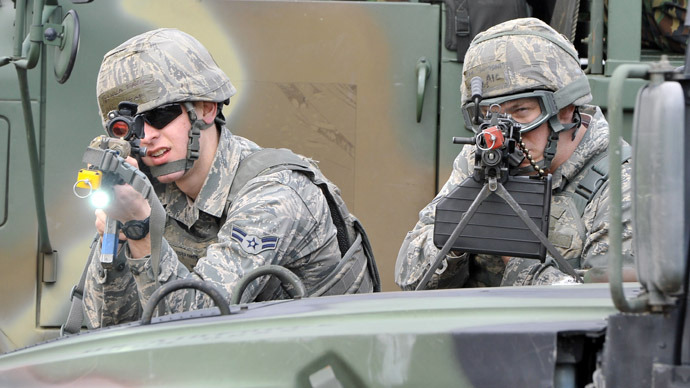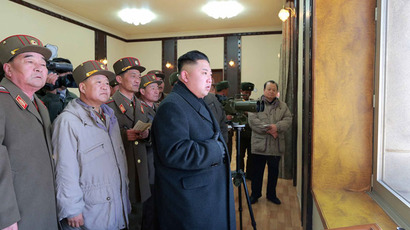US vows to protect Seoul with nukes amid rising Korea tensions

Every military resource the US has, including nuclear arms, will be available to its ally South Korea in the confrontation with its northern neighbor, US Deputy Defense Secretary Ashton Carter pledged in Seoul.
"We remain steadfast to our commitment to extended deterrence offered by the US nuclear umbrella," Carter said after talks with South Korean Defense Minister Kim Kwan-Jin.
"We'll ensure all of our resources will be available to our
alliance," he was quoted as saying by Yonhap news agency.
Carter is visiting South Korea as part of a four-nation tour of
American allies in Asia, which also includes Japan, the Philippines
and Indonesia.
The veiled threat comes amid heightened tensions in the Korean Peninsula, which started with Pyongyang’s third nuclear test in February. North Korea detonated a nuclear device in defiance of the UN Security Council resolution banning it from developing nuclear weapons.
North Korea insisted that it needs nuclear deterrence to guard
its sovereignty against the United States, South Korea and Japan.
Pyongyang claimed that Washington plans to invade North Korea,
possibly using its nuclear arsenal.
After the Asian country warned that it would deliver a preemptive nuclear strike before allowing any aggression, the US said it will boost its national anti-ballistic missile system by deploying additional interceptors in Alaska. Further plans include stationing new radar facilities in Japan to monitor North Korean launches.
Spokesman for China’s Ministry of Foreign Affairs, Hong Lei, said that such actions risk worsening regional instability.
“Strengthening antimissile deployments and military alliances can only deepen antagonism and will be of no help to solving problems,” Hong told reporters in Beijing on Monday.
With tensions in the region remaining high, some politicians in South Korea said their country needs a nuclear arsenal as well. Washington opposes further nuclear proliferation, saying it can protect its ally in the event of a new war.
Seoul has also recently struck a deal with the US allowing it to deploy longer-range missiles capable of reaching any part of North Korean territory. Previously, the South had been forbidden from using such weapons as part of its military partnership with the US.














